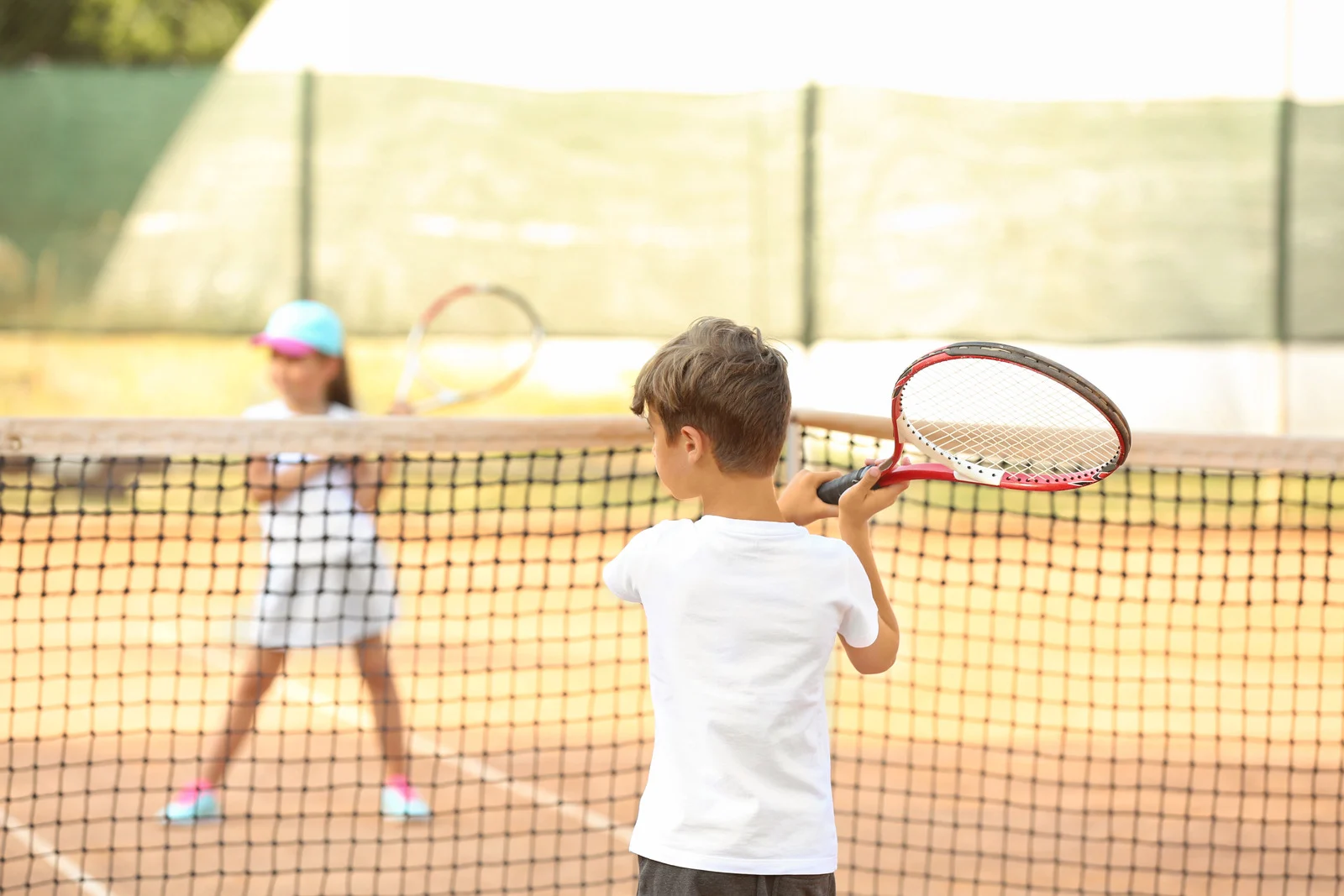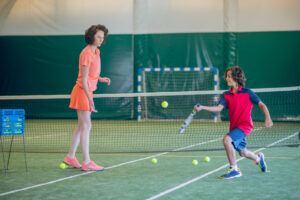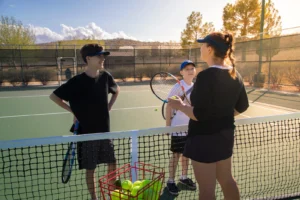Introduction
Tennis is a game which is played and enjoyed by people of all age groups. The younger the child is, more convenient it will be for him/her to learn the game. A child can start playing this sport with a tennis coach, at a tennis club or a tennis court, at an early age of 4-5 years old. At this age they can start with basic moves.
At this age, the tennis ball and tennis racquet given to the child is comparatively smaller and lighter to accommodate them well. If you want your kid to ace in the game of tennis, private lessons and having proper tennis equipment are essential. One thing you should keep in mind is that it’s never too late to start learning. Even if you are old and has never played tennis before, you can start learning. Playing tennis professionally requires physical fitness, training and good coordination. Though, it is also played as a fun and social activity by people of all ages.
So, let’s get started and know the best age to start tennis!
Best Age to Start Tennis Lesson
Playing tennis is an amazing activity if want your child to stay active and develop physical strength. It is recommended that perfect age to start playing tennis is between the ages of 8 and 10. As, at this age they are more physically mature and better to handle a physical activity as intense as tennis. Exercise at this time will help them build strong bones and muscles.
Around this age, physical body develops and mental agility increases. It helps them get better training for specific sports and activities like tennis. Children are more attentive, rational and starts becoming independent. It helps them excel in sports like tennis.
Benefits of Starting Tennis Lessons for Kids Early
Getting children enrolled for tennis lessons early can result into many benefits. These benefits are:
1. Become Natural Pro Players
Children who start playing tennis early become natural players. They have more time to practice and pick up the right moves and footing. It then becomes a second nature to them, giving them a solid foundation. They can utilize these skills when they continue to play as they get older.
2. Improvement in Visual-Motor Coordination
Visual-motor coordination is an important aspect in a child’s growth and playing tennis helps in developing this skill. It enhances the ability to focus on the ball with accurately hitting with a racket. Regular practice will improve a child’s visual motor skills and it will help them have more success in the game.
The benefits of these skills are:
Visual-motor skills includes the coordination and integration of vision and movement control. It is required for many activities like sports, reading, writing and drawing.
These skills are important for eye-hand and eye-foot coordination skills, bilateral coordination and body awareness.
Strong visual-motor skills help improve performance in physical activities as well as contemplating complex mathematical problems and instructions.

3. Improvement in Tactical Thinking
Playing tennis helps in developing children’s tactical thinking skills. With such skills they learn plan ahead and well as strategize their shots against their opponent’s moves. This skill is invaluable and helps children succeed in sports and life.
4. Teaches Kids Tolerance & Discipline
Tennis teaches kids three important qualities of life i.e., discipline, tolerance and respect. The game of tennis requires commitment and patience as mastering the strokes and footwork take time. The children with practice will become well-rounded and disciplined.
5. Keeps Them Healthy & Fit
Children always love activities in which they can have lots of fun and playing tennis is the perfect choice. It involves a lot of fun and is also an effective way to stay healthy. Frequent movement in tennis helps them sweat which has many benefits for the kids. Not just kids, adults also gets the same benefit. Hence, tennis is good for everyone.
Avoiding Burnout for Tennis Players
Burnout is a phase that a sports person goes through when they are not finding joy in the game and start feeling overwhelmed. To avoid such situation players should learn new skills, take breaks and set realistic goals.
Taking a break is very important for players to rest and recharge. The game of tennis should not be taken as a continuous grind. The players should be given the chance to take time and step away for a while to stay motivated and refreshed.
To help with burnout, it’s important for children to take part in other new sports and activities and not just one activity to provide balance and relief.
The tennis training session should be engaging and not too long. With this the players stay engaged and enthusiastic.
Some athletes need special guidance to build confidence and to face tough situations. Consulting with a sport psychologist can help them fight struggles and concerns they are facing.

Phases Of Learning Tennis
Learning to play tennis involves understanding different phases of development. The cognitive phase is the first stage. At this point, players focus on figuring out the best way to do things like how to grip and swing the racket and where to stand. This action may be a bit bumpy at first, but it will become smoother with time as players spend more time in this phase. This time can range from just a few minutes up to a few weeks based on experience and how they learn.
The second stage is known as associative learning. During this phase, the player has a good understanding of how to hit the ball and is able to combine smaller movements into larger chunks. This stage typically lasts for a couple of months and leads to more fluid, accurate shots. Players can identify and correct errors more easily during this period of learning.
The last one is called the autonomous phase. During this, players can perform a shot without having to think about it. However, it’s possible for them to revert back to the cognitive phase if they need to make changes or adjustments. By repeating drills and practice, they can eventually reach a point where they are again in an autonomous state.
Final Thoughts
Thus, if you have a passion for tennis, an early start to training and introducing the game can help you develop the necessary hand-eye coordination, attention span, mental strength and tennis skills required to play professionally.
The game of tennis duly notice potential talent and if you put in full dedication, you can surely become a professional tennis player. Tennis with being a competitive sport also teaches important life lessons such as perseverance, discipline, and sportsmanship. If you have love for tennis and has the potential to ace it, take the opportunity and fulfil the challenge of professional tennis.
With right mindset and a tennis racket in use, you can undoubtedly achieve your goals in the tennis world.
Start Learning tennis and enjoy your journey!





